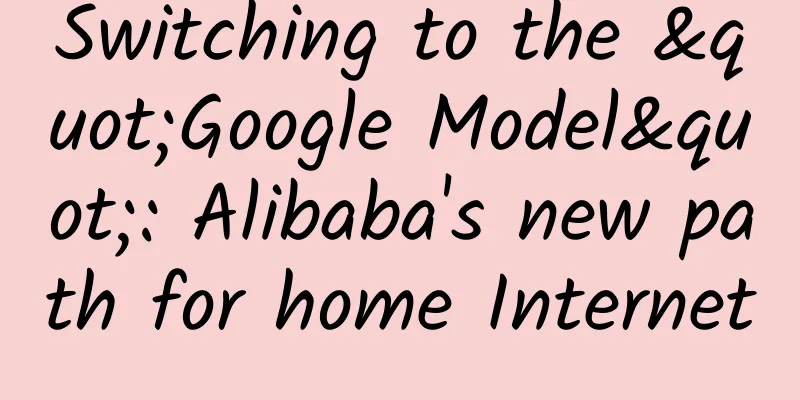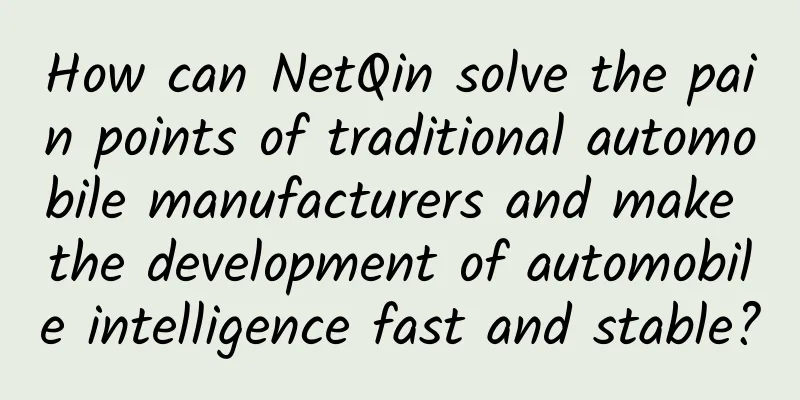Content payment: Your thirst for knowledge makes Luo Zhenyu and others earn tens of millions a year

|
Paying for content has its origins. On the other hand, for users, the quality of purchased content products is still uneven. Although there is no shortage of platforms vying to invite famous and professional content, there will inevitably be a situation where you take a shower, change clothes, and get ready for tea, but when you open the lid and unexpectedly drink a mouthful of tea foam, you are in a state of panic. Have the content platforms really found the right path in this commercialization attempt? “Paying for content” has become popular, and now what? "This will be our most important profit model in the future." Several people in charge of related companies in the industry, including NetEase Cloud Classroom, confirmed to NetEase Technology. Yu Jianjun, co-CEO of Himalaya FM, also revealed to NetEase Technology that by the end of 2016, the revenue share of Himalaya's paid content had exceeded 50%. The competition for top resources and the closure of marginal businesses also began. From the very beginning, "Dedao" has spared no expense in inviting "top teachers" in various fields of knowledge to join. In a small-scale exchange in March 2017, founder Luo Zhenyu bluntly stated that the invitations to these individuals were all prepaid, and the amount was "no less than seven figures in advance." It can be said that this was somewhat of a pretext. Douban, a "slow company", put new wine in old bottles and launched a paid content product Douban Time in March 2017. It brought in Bei Dao, Pai Hsien-yung, Dai Jinhua and other literati and scholars with similar styles to its platform users to take the lead. It also took offline Douban Moments, Douban East and West and other sections that are relatively useless in terms of commercialization. It is rumored that Douban FM will also be closed. Xin Shi Xiang launched the "Book Club" in October 2017, and signed contracts with Zhang Hongjie and Feng Tang to write and lecture on their own books. At the same time, it gradually discontinued its previous experimental businesses such as the "Library". Founder Zhang Wei told NetEase Technology that after the launch of content payment products, other fronts are shrinking. "This is the most important upgrade of Xin Shi Xiang at present." Qingting FM launched Gao Xiaosong's "Ai Da Jin Zhi Bei" and Jiang Xun's "Dream of Red Mansions" and other casual topics to suit the tastes of the public. … The content platform, which has carried the gene of "teaching, educating and answering questions" that users have needed for thousands of years, seems to have finally grasped the business codes of the Internet era and found a self-consistent logic. However, up to now, there are still many problems to be solved in the harmonious and prosperous content payment industry. For example, whether the existing content on the market is really what users need to pay for? Also, how to maintain a considerable repurchase rate for products, and what new ways to try existing products are available. Of course, there is also the issue that companies are most concerned about: Is content payment the ultimate business model of these platforms? 1. Commonality of the platforms participating in the “content payment boom”: a season of user harvest after years of accumulation According to the data released by various platforms in 2017, after Zhihu received its D round of financing at the beginning of the year, it had more than 84 million active users, 22 million daily active users, and 14 billion monthly PVs. Douban, which was founded 12 years ago, has already had more than 100 million registered users. The Dedao App announced that it has more than 11 million users. Even the New World, which relies on the WeChat channel, has accumulated nearly 4 million fans. The four-year-old Himalaya FM said that its registered users have exceeded 400 million. But objectively speaking, neither Douban Guokr nor Zhihu Cloud Classroom can be described as "fast" from a commercial perspective. They are like Bolt in terms of reputation but a snail in terms of profitability. Whether it is Zhihu publishing physical books, Douban opening a marketplace, Himalaya making smart speakers, or New World repeatedly "throwing books" and "escaping from Beijing, Shanghai and Guangzhou" to find sponsors, it seems that there is always some unsystematic and small-scale stalls, not real. In the past year or so, they have all started to pay for content, which can be regarded as a real store. For content platforms in the post-traffic era, the early user accumulation and sedimentation is more like a physical training, and now is just the beginning of a marathon. As early as 2015, Zhou Yuan, the founder of Zhihu, admitted in an interview with NetEase Technology that native advertising was the monetization method that the team hoped to focus on at that time. As for other methods, "the most important thing is to supplement the user scenario... We can find a scenario that is closer to us, more relevant to users, and more valuable to try, but it is just an attempt. We can't say that we will definitely do it well." Two years later, when Zhou Yuan was interviewed by NetEase Technology again this year, he expressed the view that Internet users should no longer be viewed merely as traffic, "otherwise it will be difficult to find a better connection point with user value." Coincidentally, the two-year-old New World is also facing the same problem. In the past, it created content to retain readers and advertised to make money. Founder Zhang Wei believes that most companies in the same industry have only stopped there. If they want to take a step forward and become a larger and more innovative company, they must find a way to "turn readers into users." In the first half of 2017, he believed that New World had become more mature and stable in terms of users and revenue in the past year or so, so he took advantage of the trend and started to do content payment. "What you need to provide to users is definitely not just article content, but user value - unified, lasting and replicable value. We have done so many things, including filming online dramas and organizing events, and all kinds of explorations, just to find this thing." Zhang Wei explained to NetEase Technology that the screen-sweeping events that the outside world has seen that Xin Shi Xiang has constantly created in the past are just a structural and functional existence from the company level, and are not the business itself. So we can tentatively understand it as content payment as a "sense of value" service based on user accumulation and continuation of influence. Second, what is the user's willingness to pay for content? Is it worth it for users to pay to consume the content on the shelves? Entrepreneurs will definitely say yes, as that is how they make money. What is the driving force behind consumption? Social information overload, excessive distraction of attention, fragmented learning needs, high-quality information intake experience, the popularity of smart phones and further coverage of WiFi, the popularity of mobile payments, and of course, the more important "consumption upgrade" are generally based on these foundations. Translated into a recently popular term, it means "the contradiction between the people's ever-growing needs for a better life and the unbalanced and inadequate development." Paid content platforms also frequently throw out words such as "relieving anxiety", "providing value", "lifelong learning", and "self-realization", either to create a sense of urgency that "if you don't learn, you'll be in big trouble", or to convey a sense of crisis that "if you don't know these, how can you keep up with the pace of other people's chats?" From the fact that various platforms have launched similar categories such as emotions, finance, workplace, and real estate, it can be seen that the exhortations cater to the user's psychology. According to the latest report released by Analysys in October 2017, “The top 10 knowledge monetization platforms have maintained a high-speed growth trend, with the number of active users increasing from more than 30 million in January 2016 to more than 50 million in June 2017. Yu Jianjun, co-CEO of Himalaya FM, revealed to NetEase Technology that based on the statistics of Himalaya FM's backend data samples, it can be clearly seen that users' willingness to pay is now increasing, even though free sharing of content still accounts for the majority of the platform in terms of quantity. "From the perspective of user demand, personalized, informative and entertaining content is most likely to win the favor of users. Overall, the specialization and deep verticalization of knowledge consumption is an obvious trend," said Yu Jianjun. In terms of course categories, personal growth courses are the most popular. On Himalaya FM, "Speak Well" by Ma Dong and the "Weird Group" has been at the top of the best-selling list, and has generated nearly 50 million in sales. In addition, courses such as "Meng Man Appreciates the Most Beautiful Tang Poems", "Hearing Wu Xiaobo Every Day" by Wu Xiaobo, "How to Develop a Good Voice" by Xu Hao, and "Professor Chen Zhiwu's Finance Class" by Chen Zhiwu are also at the top of the best-selling list, "having reached or are expected to reach tens of millions of sales." Fang Jun, who has been studying content payment, bluntly stated that "usefulness" is the first common feature of these products on the market at this stage. "Of course, this usefulness can be explained in many ways. Some may be placebos, some may make people feel good, some may improve knowledge, and some may exercise skills, but practicality is the common feature of these paid knowledge products." Another feature of paid products at this stage is that "they have greatly reduced the difficulty for users to obtain knowledge from the products and reduced the effort required. Past knowledge products (such as books, courses, etc.) have overestimated the effort that users can make, not to mention that mobile Internet now makes it more difficult for users to concentrate for a long time." Fang Jun said. Although the word "seems" can be added before "reduce difficulty", after all, there is rarely any "quick success" in real learning. In terms of book selection, Zhang Wei said that the New World Reading Club uses two screening methods based on user reading habits: Since the majority of New World Reading Club users are female (about 60%), most of them are young people around 25 years old, and they mainly live in first- and second-tier cities, the audiobook category is selected based on the needs of this user group based on "growth anxiety" and "loneliness anxiety". Jiang Zhongbo, general manager of NetEase's education division, believes that first of all, content products with "lasting value" are more worthy of users' payment, such as the video courses provided by NetEase Cloud Classroom. "Training is more practical, short-term, and utilitarian, but we cannot deny that training actually has lasting value." Secondly, it must match the user's stage-by-stage habits. For example, users are exposed to videos through entertainment needs, and this viewing habit drives their potential willingness to continue learning through videos. According to Jiang Zhongbo, NetEase Cloud Classroom now covers 75 sub-fields, among which three types of content have performed significantly better in terms of paid content. The first is general workplace skills such as PPT and PS, the second is professional skills such as front-end UI, and the third is soft skills and life content. In addition, for example, the topical live broadcasts launched by Zhihu Live and Qianliao, and the paid "consulting" provided by Fenda and Weibo Q&A are more flexible and free, with little expectation of practical skills guidance. After launching Gao Xiaosong's "Aidajin Guide", Qingting FM President Zhong Wenming also told NetEase Technology: "Ours is different from the anxiety-selling business and finance. We feel relaxed and relaxed when listening to this." Toutoushidao Fund, which has invested in products such as "Shidian Classroom" and "Yixinli", regards the content field as one of its main investment directions. Director Cui Cui directly summarized the content that users are willing to pay for into three characteristics: first, it must be professional and have industry endorsement, second, it must have a framework and system, and third, it must be easy to understand. Based on this, she told NetEase Technology that there are two types of content payment products that she is optimistic about: one is the strong celebrity effect, such as Gao Xiaosong's "Aidajinzhibei" on Qingting FM, and the other is knowledge and skill products launched by Himalaya and Get. In summary, at this stage, users are more willing to pay for content that can provide these services: 1. It can help them improve their professional skills in the workplace; 2. It can improve soft culture such as knowledge and insights; 3. It can provide content entertainment needs; 4. It can provide life advice and guidance; 5. It can provide emotional guidance and companionship. At the same time, professionalism, systematization, and easy understanding are the plus points for them to be accepted by the public. 3. How are platforms taking money out of users’ pockets: Content production and sales channels are equally important For paid-content games, “you can’t just sell them whenever you want.” According to Zhang Wei of New World, first, it depends on whether the platform is able to sell well through its own channels; second, if it does not have its own channels, it must at least be able to build another sales system, “which is a very important issue.” He believes that for paid-content products, the ability of sales channels in the early stages is no less important than production. Dedao, which held two "knowledge release conferences" in 2017 and launched box advertisements on Beijing Metro Line 4, known as the "cultural line", in October, may have a more practical experience of this. Cui Cui's research conclusion on the promotion of "knowledge payment" is that it is necessary to constantly establish connections with users through content and products, and she also suggested exploring hot products. "It's not that we should start with hundreds of SKUs and everyone should make a product. This will affect people's trust in knowledge payment. Knowledge is quite different from other products. For example, books must be reviewed and proofread at least three times, and there must be teachers to teach. People still have authoritative expectations for it, and endorsements from suitable people will empower the platform." Hot-selling products are more likely to attract the first batch of users who are willing to pay for content, and they can also find content that their users are willing to pay for. She took the example of "Ten O'clock Classroom": when it was first launched, the sales of six or seven courses were relatively average, with only a few thousand copies. "Until Teacher Liu Xian's psychology course was launched, it became popular all of a sudden, and everyone was willing to pay for it. This platform must continuously provide lecturers or content production teams with data analysis." 4. Current situation and paradox: embarrassing repurchase rate, non-rigorous conversion rate comparison, and copyright issues Let's talk about repurchase rate first. For paid subscription content products, if the calculation starts from one year, the repurchase rate in the second year will also reflect certain problems. The popularity of paid content in the past year or so cannot rule out the heavy packaging of the platform and the curiosity of users to try new things. Because the cycle is relatively short, there is no data that can be used to compare repurchase rates from a macro perspective, but many industry insiders are not optimistic about this and are only waiting and watching. Zhang Wei also once expressed the view that "paying for celebrity-driven content will not last long and will soon be demystified as a whole." In 2016, after the launch of Li Xiang's Business Insider on the Get platform, it gained 90,000 subscribers and became extremely popular. Naturally, the repurchase rate in the second year became a concern of the outside world. At the Get press conference in May 2017, just when everyone was eager to hear the expected performance of the second quarter after the end of the year, the news came that Li Xiang had changed from an author to the editor-in-chief of the Get team. The second season of Li Xiang's Business Insider was renamed Li Xiang's Knowledge Insider, and the annual fee was reduced from 199 yuan/year to 0 yuan/year. The repurchase rate no longer had any vertical reference significance... In terms of conversion rate, iResearch mentioned in a report released in October 2017 that high-traffic platforms such as Zhihu and Himalaya FM did not bring high profit dividends. The payment conversion rate of Zhihu Live was only 2.3, and the payment conversion rate of Himalaya FM was only about 3%. On the contrary, the payment conversion rate of App was as high as 18%. But even if the final statistics are accurate, this method of calculation and comparison is actually not rigorous. After all, for Duoduo, paid products themselves account for an absolute number of total SKUs, while Himalaya FM and Zhihu started out as free platforms, and the platform carries a large amount of free content, so the conversion rate is naturally diluted. Copyright issues. Just as the copyright of the video industry was in chaos a few years ago, with free but pirated resources everywhere, the current "content payment" market also has a chaotic digital copyright ecosystem. Opening the existing content platforms on the market, audiobooks have the concept of digital copyright, but in fact many audiobooks in China are only randomly read and narrated, which makes the copyright in a very vague state. Zhang Wei told NetEase Technology that the relevant fields in China are still in a gray area to a certain extent, such as the dubbing of audiobooks. At present, New World has two main ways to solve the problem of digital copyright: one is to find the original author of the book to speak directly on the platform, such as Zhang Hongjie and Feng Tang, and the New World team will do the packaging and promotion; the other is to find a publisher to cooperate. Will it take a long time to eliminate, integrate and regulate like video websites? Zhang Wei believes that this is certain, but because the industry is still in its early stages, "there are opportunities, and this is a time to scramble for copyrights." What needs to be done is to find a good combination and symbiotic relationship with authors and publishers. "Law is a game, and we don't know what will happen in the future; at least within the current legal framework, there is no problem with this matter." 5. Where does this literary business story end? The sudden fame of paid content may have something to do with the conceptual connection between "culture" and "business". If we use Kong Yiji's tone of "Can a scholar's work be considered stealing?", it means, can cultural matters be turned into business? Look where we are now. Yu Jianjun told NetEase Technology that Himalaya FM currently has three main profit channels, including targeted advertising, smart hardware, and content payment. On June 6, 2016, Himalaya FM launched the "Paid Premium" section. Ma Dong's "Talk Well" had sales of over 5 million on the first day, and sales exceeded 10 million in 10 days. By the end of 2016, paid revenue accounted for more than 50% of Himalaya's revenue. "But advertising is definitely not the main way for cloud classrooms to make money. You can hardly see any ads when you start the computer or on the page," said Jiang Zhongbo. Even if NetEase's overall products have some advertising, everyone supports it. "We actually consider it based on the entire product system. Sometimes we may launch free content. For example, public courses are content with public welfare as the main direction, but in fact, it has a very big driving force for the development of our entire NetEase education. Find a balance between free and paid content." Jiang Zhongbo said that in terms of profit model, cloud classrooms are mainly based on content payment, not other aspects. Although the current business model of Xin Shi Xiang still mainly relies on advertising revenue, Zhang Wei emphasized that it "does not make money by writing soft articles", but by cooperating with certain brands, Co-Branding, including planning services, which is more like creating "media events" and looks more like a planning company. "It's just that the platform and channels are in our own hands, which will make our advertising revenue higher than that of a self-media or media." But in the future, content payment may become the main profit model of Xin Shi Xiang. Zhang Wei said frankly: "To a certain extent, it can be said that 'Dedao' has single-handedly blazed a trail for paid knowledge. But the cruelty of this industry is that the first mover does not necessarily have the first-mover advantage, and it is not uncommon for the latecomers to catch up." As Hayao Miyazaki quoted Paul Valéry's poem in the animated film "The Wind Rises": The wind blows, and all you can do is try to survive. As a winner of Toutiao's Qingyun Plan and Baijiahao's Bai+ Plan, the 2019 Baidu Digital Author of the Year, the Baijiahao's Most Popular Author in the Technology Field, the 2019 Sogou Technology and Culture Author, and the 2021 Baijiahao Quarterly Influential Creator, he has won many awards, including the 2013 Sohu Best Industry Media Person, the 2015 China New Media Entrepreneurship Competition Beijing Third Place, the 2015 Guangmang Experience Award, the 2015 China New Media Entrepreneurship Competition Finals Third Place, and the 2018 Baidu Dynamic Annual Powerful Celebrity. |
Recommend
Two safety concepts of "country" and "people" in stampede incidents
High-density crowds always bring chaos, and in ch...
A brief analysis of precise audience targeting in Internet advertising!
With the development of Internet advertising tech...
A strange woman locked a young child in the toilet to educate him and became a hot topic. Why did the child cry and make a fuss?
Review expert: Peng Guoqiu, deputy chief physicia...
Google's Android M secret weapon: built-in theme engine
Google launched the Android M developer preview f...
Why don’t we like wearing bracelets?
"We will not invest in wristband projects any...
This preservative commonly found in cakes and breads is actually a "deadly assassin"?
It has been almost half a month since the Mid-Aut...
Operators have already shown their unique skills in entering the smart TV industry
January 29 (Reporter Zhang Zhichang) The cross-bo...
After using Siri for so long, do you know these tricks?
Siri has been released since 2011 and is now six ...
Daily Fresh Product Analysis
MissFresh is a mobile e-commerce company that foc...
What did Meng Dehai say in "Storm"? Have you guessed it?
The recent hit TV series "Kuang Bi" has...
The evolution of smartphones: What will smartphones look like in the next year?
On December 10, Samsung and Huawei Honor both lau...
“Distant” and “near” marketing: What do you want consumers to pay attention to in your product?
For consumers, the author of this article propose...
These raw materials can actually be used to build cars
High-strength aluminum bodies, carbon fiber compo...
Why are Huawei and Alibaba employees boycotted for switching to Microsoft? What is the specific situation?
Why are Huawei and Alibaba employees boycotted fo...
Super sweet! This is the most touching love story I have ever heard
◎ Comprehensive report by Zhang Shuang of Science...









